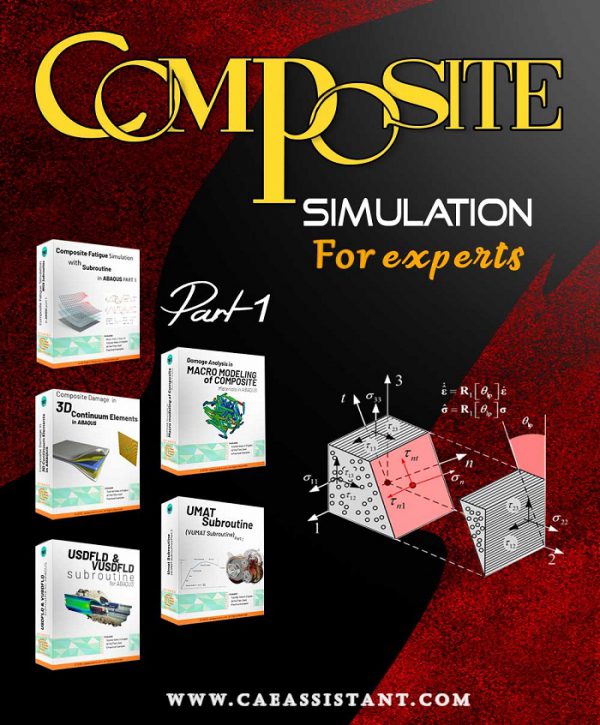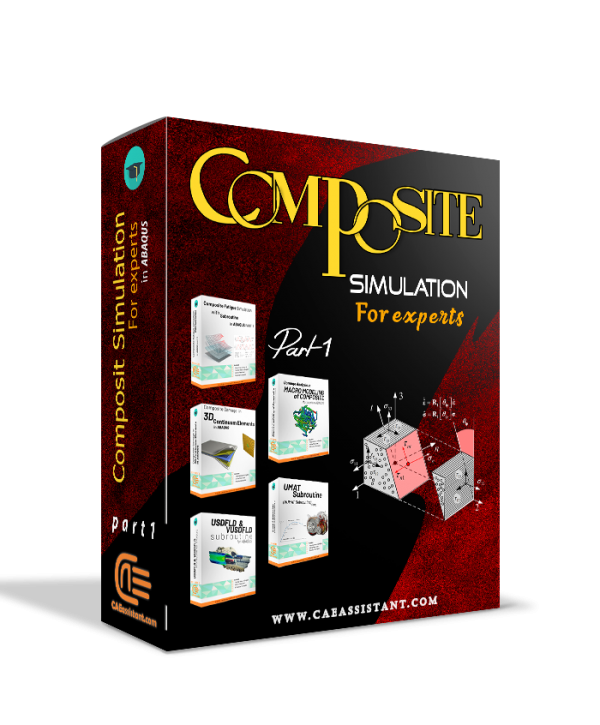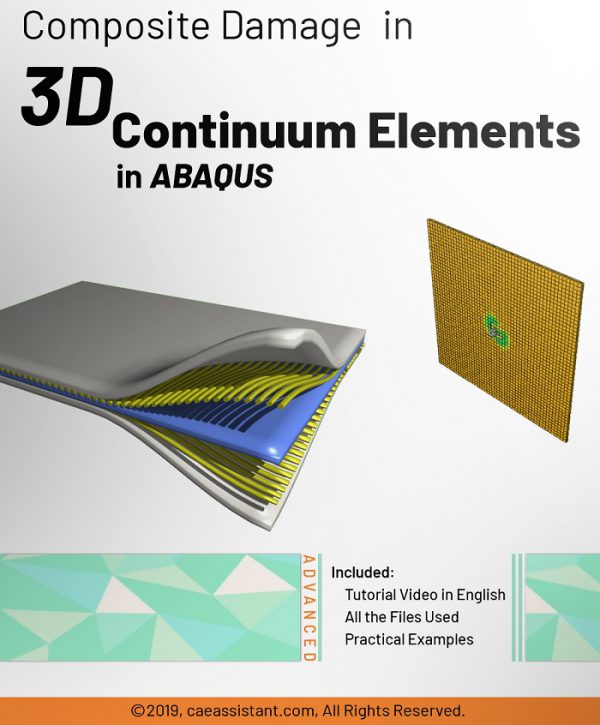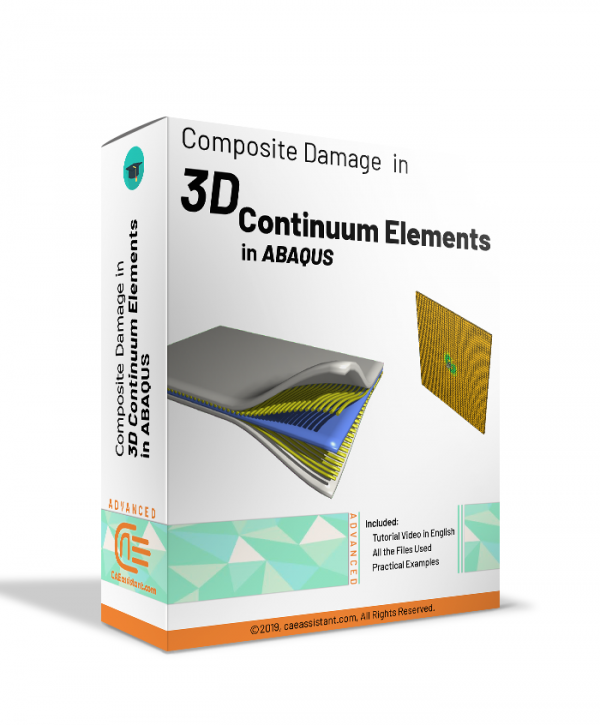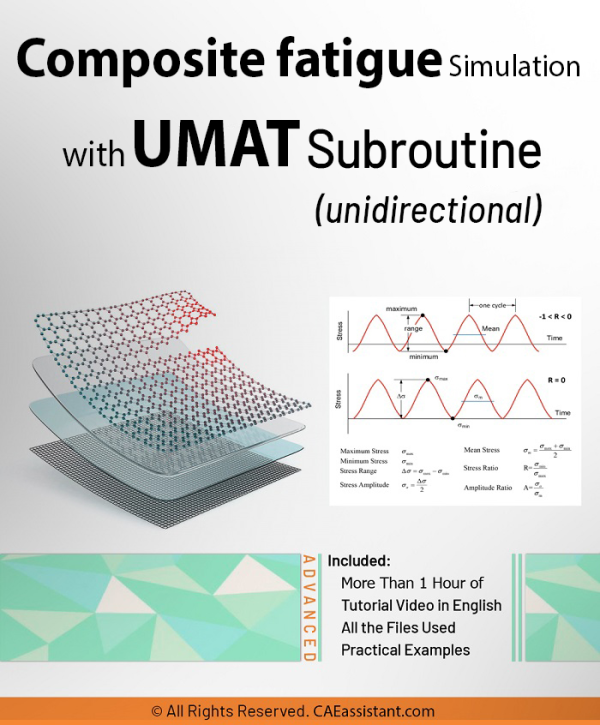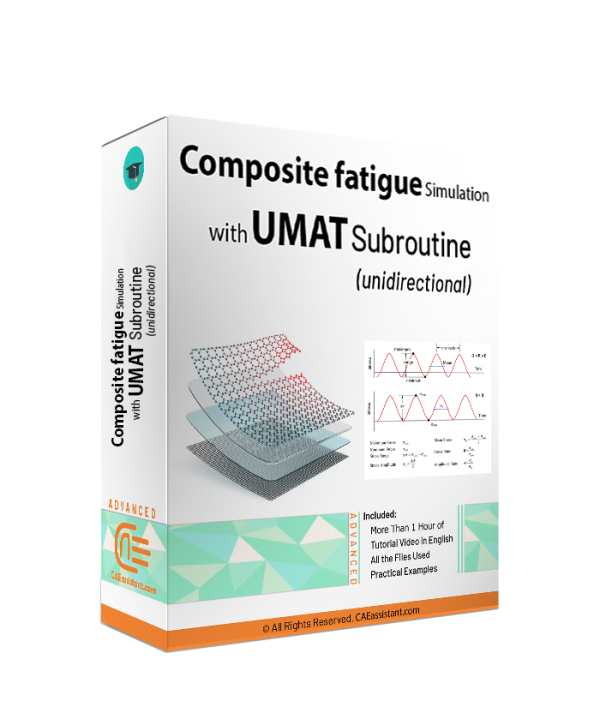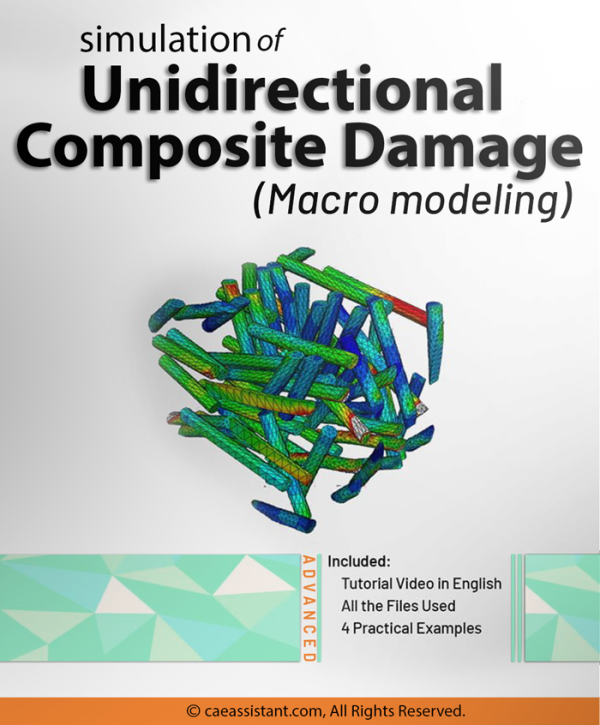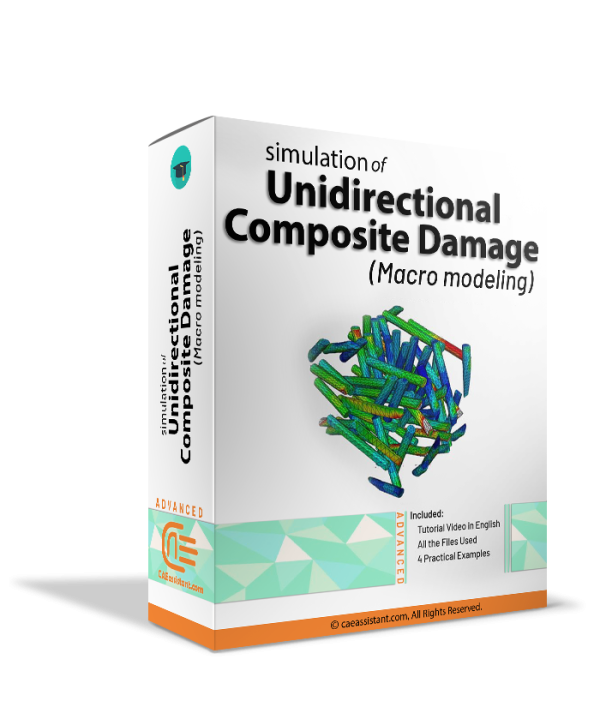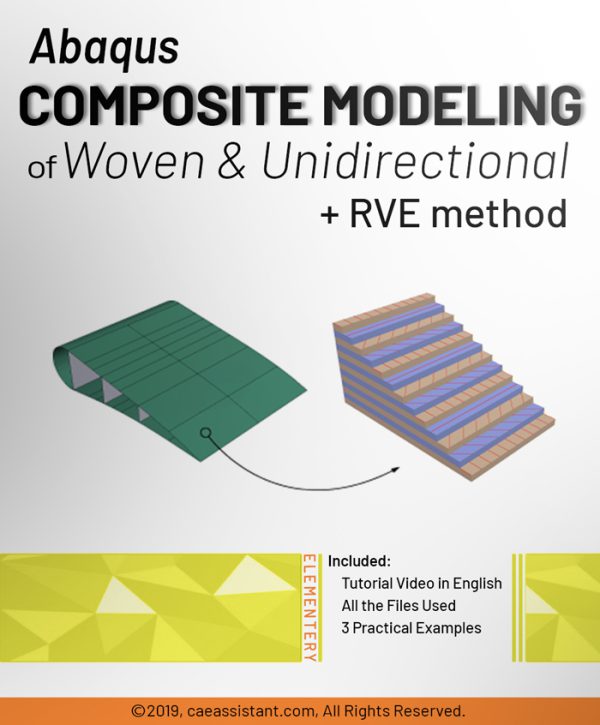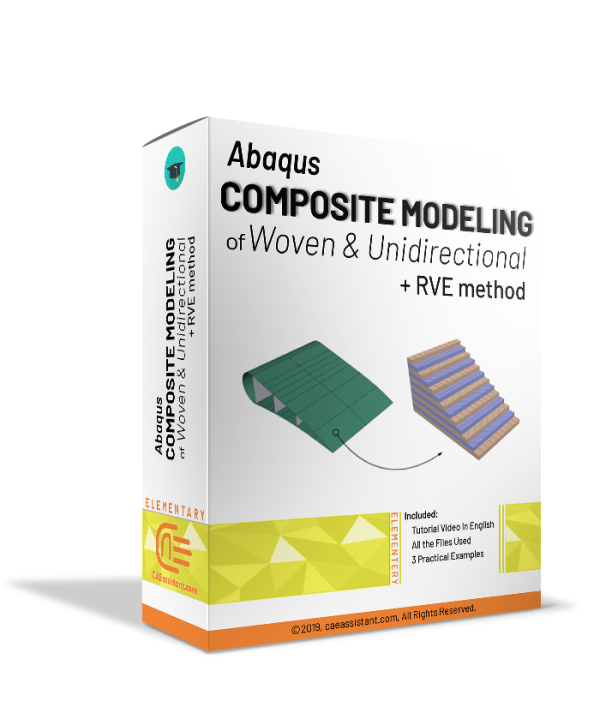Composite simulation for experts-Part-1
3D continuum Abaqus HASHIN progressive Damage for composite materials (VUMAT Subroutine)
The Hashin failure criteria is a set of failure criteria developed specifically for composite materials. It predicts different failure modes in composites based on the stresses experienced by their constituents (fiber and matrix). The criteria are widely used in engineering and computational models to assess composite material performance under mechanical loading. The criteria, while highly efficient and widely used, pose challenges when implemented in numerical simulations. Abaqus has emerged as a powerful tool to address these challenges, enabling the prediction of damage initiation and its progression (via stiffness reduction) based on the Hashin criteria. However, a key limitation of Abaqus is its applicability being restricted to 2D plane stress elements. To overcome this limitation, we developed a VUMAT subroutine in this project. This custom subroutine extends the capabilities of Abaqus, allowing for the simulation of damage initiation and propagation in 3D problems in accordance with the Hashin criteria. It should be mentioned that this subroutine includes gradual progressive damage based on the energy method. This complex subroutine could be used for static and dynamic problems.
A notable point is that in one of our other packages, we also provide training on using Abaqus subroutines to analyze the Hashin criterion. However, in that package, damage occurs instantaneously. In the current package, we have modeled the progressive Damage, which is more complex but could be more beneficial for solving your specific problems.
Composite Fatigue Simulation with UMAT Subroutine in ABAQUS (unidirectional)
Simulation of Unidirectional Composite Damage in ABAQUS
Abaqus composite modeling of Woven & Unidirectional + RVE method
This training package provides comprehensive basic information and examples on for composite modeling in ABAQUS FEM software in accordance with subsequent packages. The methods of modeling these materials are in two ways: micro and macro, which vary according to the type of material selected and how they are used. Next packages focus on two modeling types professionally.
